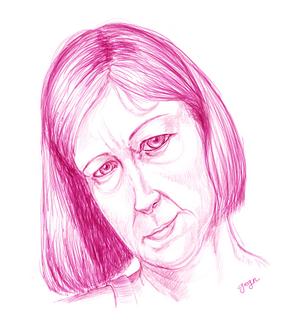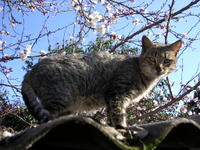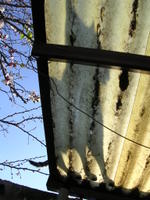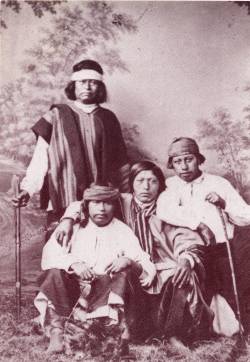 The story of Alexander Selkirk
The story of Alexander SelkirkHe was a large and strong sailor, not yet 30 years old, serving on board the galleon Cinque Ports on it´s voyage on the Pacific Ocean. Captain William Dampier had the ship some 600 kms off the coast of South America, more specifically of what would become Chile.
Alexander was not an easy-going person, he often came into conflict with the people around him, stubborn and unruly as he was. Expectedly, he fell in disagreement with the other sailors. Arguing with the captain himself, he claimed he would rather live on a deserted island than continue the journey on board.
The captain acknowledged his request and presented him Juan Fernandez, an uninhabited island in plain view from the deck. Selkirk approved to be set ashore, requiring only a few tools and some food to ensure his well being.
To Alexander this was just an opportunity to get some peace of mind, as he was certain another ship would soon pass to pick him up. Four sailors rowed him to the island, where he set foot on the sand beach.
However, a great regret struck him instantly. He called to the small boat to be returned to the ship, and that he wouldn´t make any more trouble. But the four men rowing away easily ignored Selkirk´s voice and the Cinque Ports soon vanished beyond the horizon.
 The year was 1704, and Alexander counted a musket, gunpowder, carpenter´s tools, a knife, a Bible and some clothing in his equipment.
The year was 1704, and Alexander counted a musket, gunpowder, carpenter´s tools, a knife, a Bible and some clothing in his equipment.During an initial period he stayed on the beach, fearing the sounds of "beasts" from within the island. He dwelled in a small cave, fed himself with shellfish and kept a nervous look-out for any naval traffic. We can only imagine how lonely, depressed and remorseful he must´ve felt.
Later he would move to discover the interior of the island, as hordes of sea lions swam ashore and disturbed his habitat.
This proved wise, the inland forests offered a variety of food, which Alexander would never be in shortage of. Wild goats that had been introduced by earlier sailors granted him milk and meat. He brought them down with his musket and cleaned them with the knife. Alas, he soon ran out of gunpowder and was forced to approach them on foot. In the pursuit, he stumbled and fell off a cliff, rendering him severe injury and unconsciousness for two days. Fortunately, the prey had dampened his fall and probably saved his life.
The poor castaway turned to his Bible for emotional support.
"If I ever have the good fortune to escape from this island," he said to himself, "I will be kind and obliging to every one. I will try to make friends instead of enemies."
The Good Book also helped him not to forget his native English.
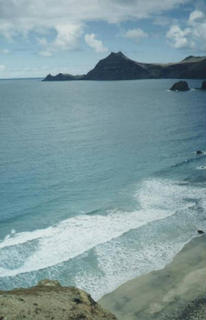 Two ships anchored in Juan Fernandez during Selkirk´s stay. But since he was a privateer, and the ships were both Spanish, he was forced to hide from their crews. Aboard those ships he would have faced a worse fate than death.
Two ships anchored in Juan Fernandez during Selkirk´s stay. But since he was a privateer, and the ships were both Spanish, he was forced to hide from their crews. Aboard those ships he would have faced a worse fate than death.As the situation demanded of him, he made extraordinary use of the equipment at hand. He carpented two huts of wood and stone and designed a knife from barrel rings found on the beach. For clothing he sew goat skins with a nail.
It had been four years and four months from the day he arrived, when finally a friendly vessel entered the small harbor. It was the Duke, coincidentally piloted by the very same William Dampier. The crew spotted the castaway and greeted him, and Alexander was incoherent with joy.
He was able to return to his homeland, where he would reconcile with the people in his village and become famous.
The story of Alexander Selkirk inspired Daniel Defoe to write his novel about Robinson Crusoe, which became one of the most recognized adventures around the world.
 Just recently, the National Geographic has performed an extensive archeological study of Juan Fernandez and made several interesting findings. They were able to establish the location of the two huts (see image). Also, by analyzing ashes from a nearby fireplace, human presence could be confirmed for the first decade of the 18th century. Finally, a compass needle recovered beneath the soil was identified as a belonging of Alexander Selkirk after thourough research in Scotland. The full results of the study will be published in the October issue of the magazine.
Just recently, the National Geographic has performed an extensive archeological study of Juan Fernandez and made several interesting findings. They were able to establish the location of the two huts (see image). Also, by analyzing ashes from a nearby fireplace, human presence could be confirmed for the first decade of the 18th century. Finally, a compass needle recovered beneath the soil was identified as a belonging of Alexander Selkirk after thourough research in Scotland. The full results of the study will be published in the October issue of the magazine. Today, Isla Juan Fernandez is open for tourism, and can be reached with a twin-propeller flight of two hours, or 760 kms, westbound from Santiago.
Today, Isla Juan Fernandez is open for tourism, and can be reached with a twin-propeller flight of two hours, or 760 kms, westbound from Santiago.Links of interest:
Isla Juan Fernandez Google Earth Placemark
Tourism on Juan Fernandez

